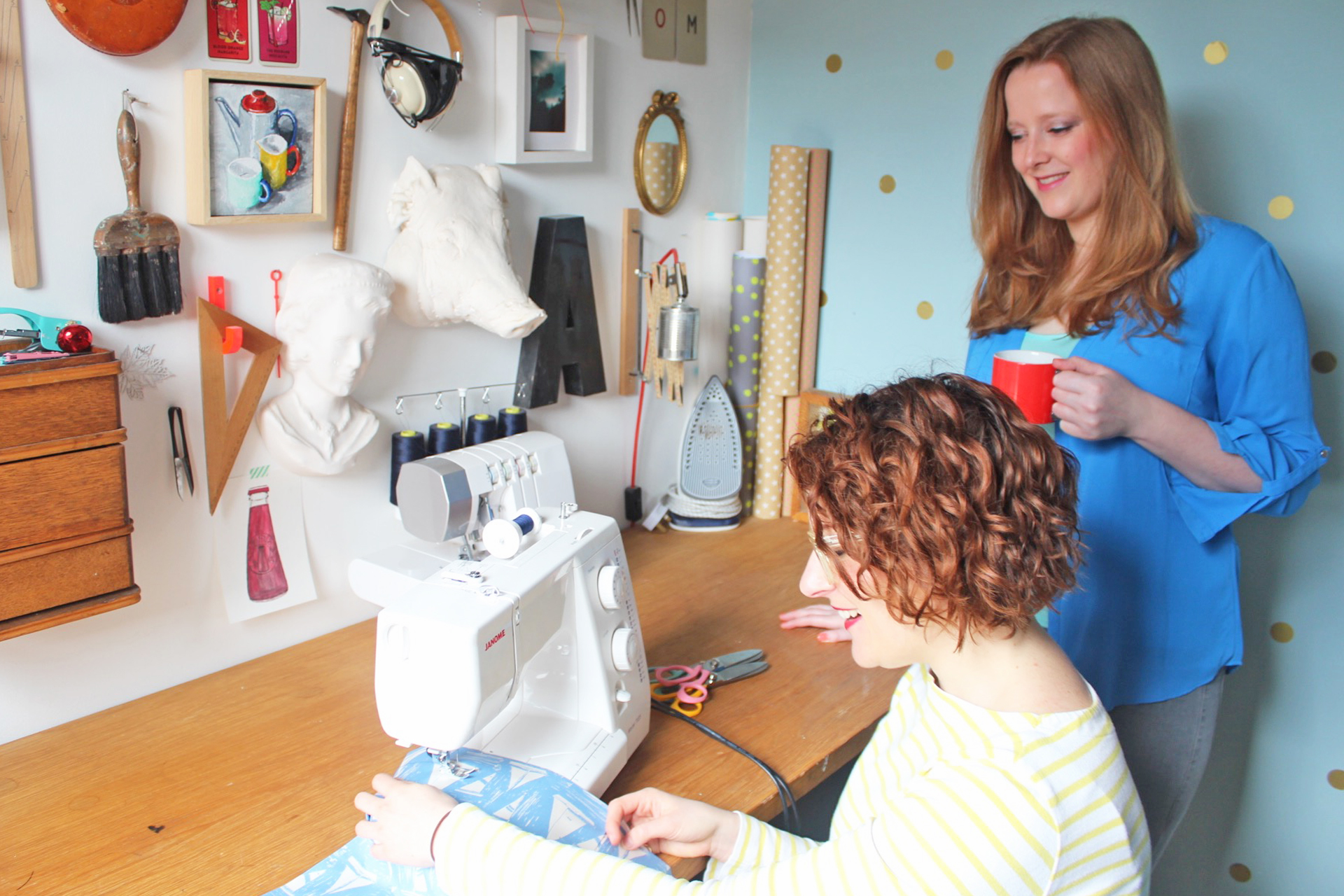
SUSTAINABILITY
As a business, we are very aware that by sourcing sewing patterns from around the world and sending hundreds of orders out every day, we have an impact on the environment. With this in mind, we continually work to reduce our footprint on the world. We always look to work with, support and promote other small businesses with the same values as us. We have long-standing relationships with the small businesses who help us to provide the services needed to run The Fold Line. When sourcing supplies and services we make sustainable choices.
Below we share with you the positive steps we have taken and the work we still want to do. We’re always looking for new ways to be more sustainable. Do you have any suggestions to help us improve? We’d love to hear from you.
CONSCIOUS BRANDS
We actively seek out pattern designers who use sustainable practices and give back to their communities. We also quality check the products we add to our shop to make sure the sewing patterns are of a high quality. A sewing pattern which has been thoroughly tested with comprehensive instructions is much more likely to give you a finished garment that you will want to wear and cherish for years to come. Here are some of the innovative brands you can find in our online shop:
TAUKO Magazine is a pioneering independent print publication for home sewists and fashion and culture lovers, who have a big heart for the planet. It looks to find new, regenerative, and empowering ways to celebrate design and clothes. It’s a start for positive system change in the fashion industry.
Sew Liberated has evolved to focus on slow fashion and sustainability. The designer believes that the act of making one’s own clothes can be transformative, personally and on a global scale, when done through the lens of sustainable fashion. Meg also hosts an online course, The Mindful Wardrobe Project, helping makers adopt a healthy slow fashion practice.
Papercut Patterns print their designs onto FSC paper and recycled materials in addition to sending wholesale orders to us in recycled cardboard boxes. They also use recycled materials in their office.
Both Helen’s Closet and the Friday Pattern Company give 5% of their proceeds to charity each month.
Named donate 1% of their annual turnover to 1% for The Planet and their pattern packaging is plastic-free. They also recycle their sample textiles and send us wholesale orders using plastic-free packaging.
Read more about our charity projects here.
OUR PACKAGING
We now stock five sizes of packing envelopes, which minimises ‘space waste’. Our packing envelopes are manufactured from F-wave corrugated card, which is durable with minimal bulk and waste. They are plastic free and fully recyclable/ compostable at home. They are made from FSC-certified and climate-neutral materials.
For extra large orders we use eco-friendly mailing bags, which are made from a by-product of sugar cane. The sugar cane is grown on reclaimed wasteland and the bags are manufactured without the use of fossil fuels. They are fully compostable at home and carbon neutral.
RECYCLING
All delivery materials, including boxes and packaging, are reused where possible first and then recycled. We also recycle all office waste where possible, from paper envelopes to ink cartridges. We donate end of line stock to a charity local to us, Animal Rescue and Care, which they sell at events to raise funds.
ENERGY
Our homes, workplaces and computers are powered by Britain’s greenest energy company Ecotricity. We only print when necessary and use FSC certified Woodland Trust printer paper where the energy for paper production is generated from waste material, resulting in zero CO2 emissions from fossil fuels and excess heat is piped into a community project.
Recycling the materials you receive from us means that more of our packaging can be reused and resourced saved.
Here’s what you can do to help:
- Cardboard mailers, envelopes, postcards and invoices. These are fully recyclable. Use the envelopes again or to store sewing patterns or paperwork.
- Eco-friendly mailing bags. Compost at home or at a community composting scheme.
- Paper sewing patterns or magazines. Donate to a charity shop or give to a friend.
